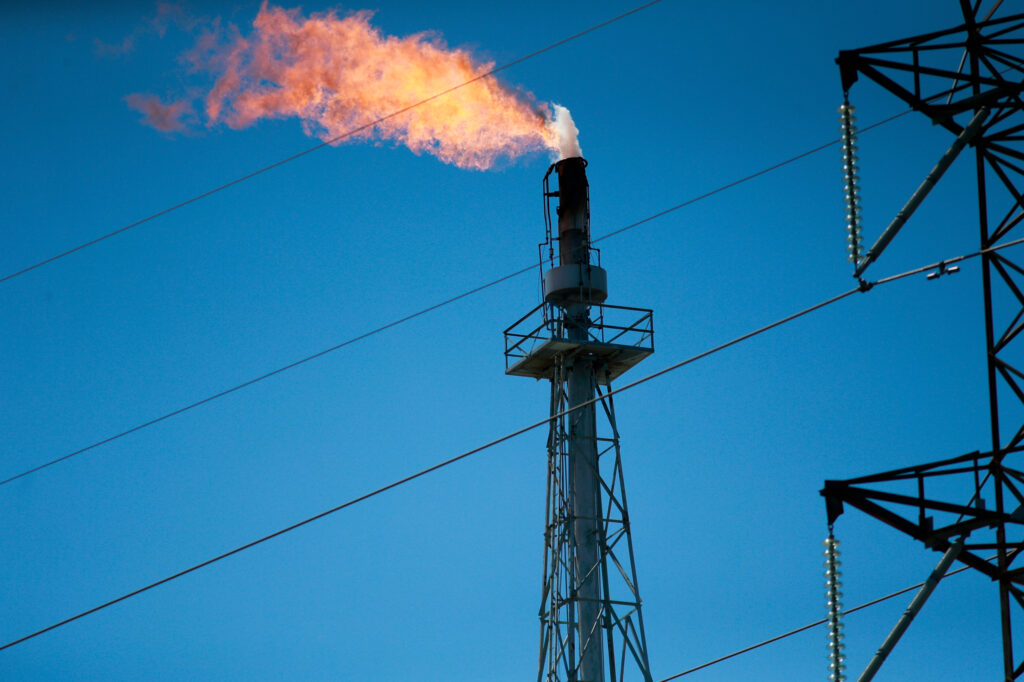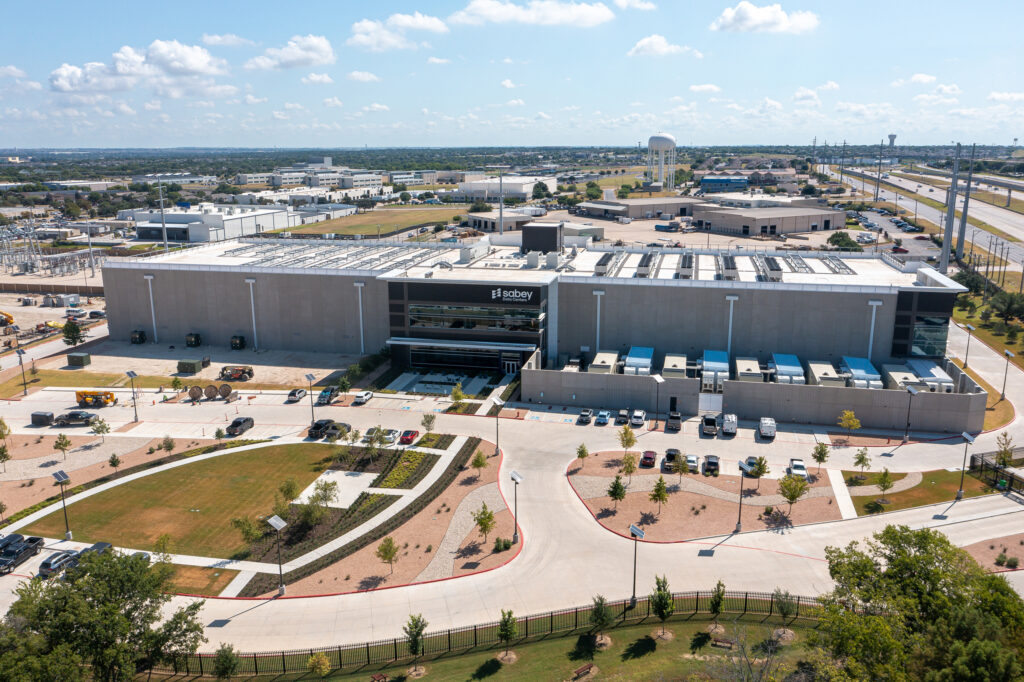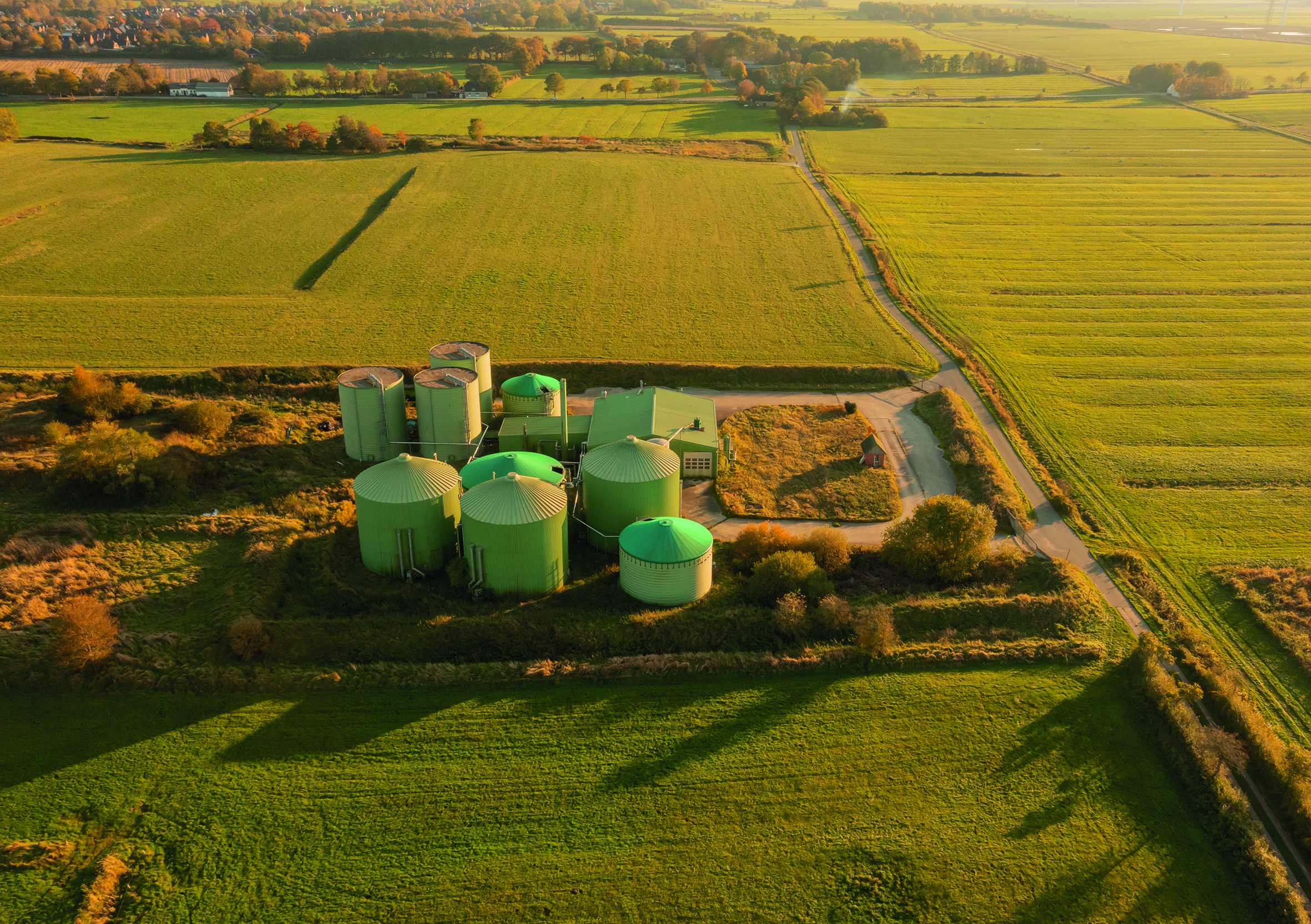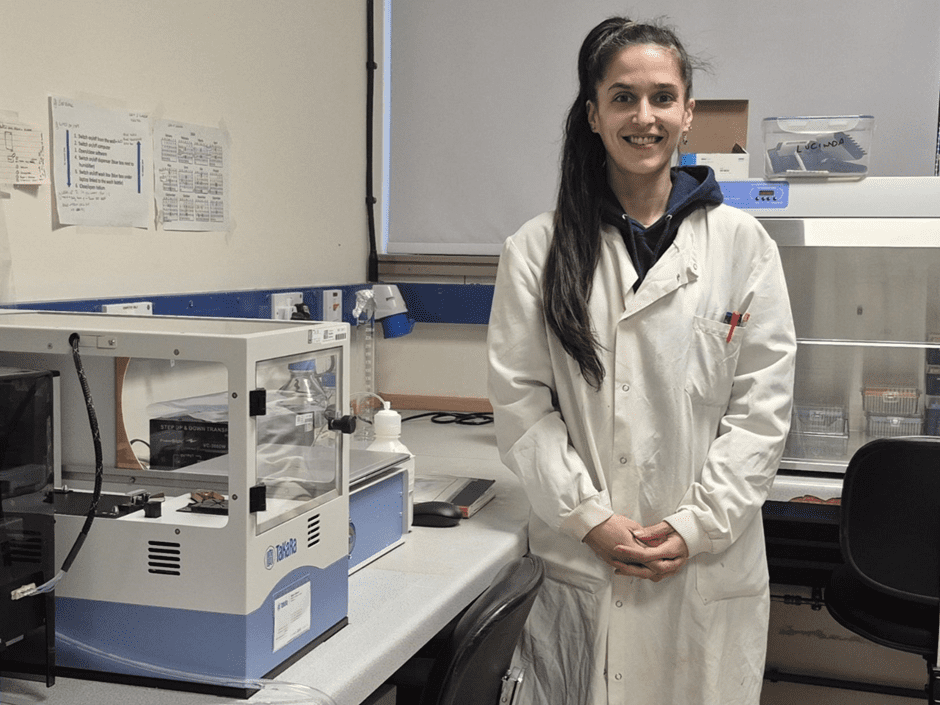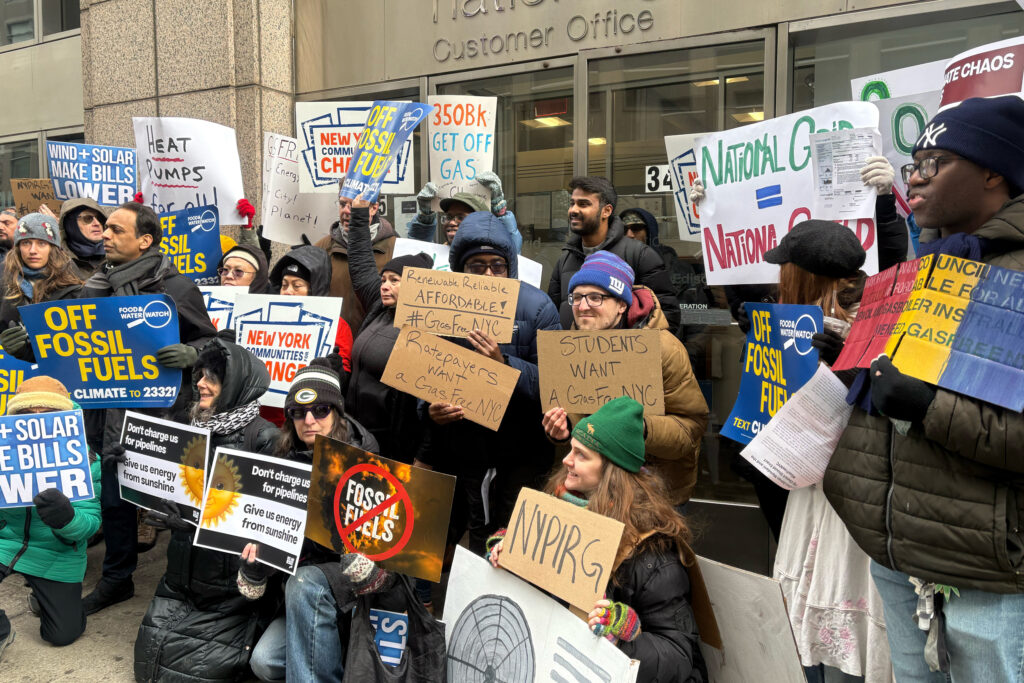Air source heat pumps are the darlings of the clean energy world, a high efficiency, all-electric heating and cooling device that allows homeowners to ditch fossil fuels. But there’s a catch. When temperatures plummet, their efficiency can also tank, causing electric bills to soar as the devices’ compressors and fans have to work harder to pull what little heat remains in outdoor air.
Enter the ground source heat pump, a similar device that extracts heat from fluid circulating in pipes buried underground. By tapping the subsurface, where temperatures remain a steady 50-59 degrees year round, ground source heat pumps can provide heating and cooling throughout the year at much higher efficiencies than heat pumps that rely on outside air.
By 2050, ground source heat pumps could heat and cool 80 million homes—up from just over 1 million today, according to a U.S. Department of Energy “Liftoff” report published in January. The report noted that workforce development, particularly the people who drill boreholes hundreds of feet into the earth, will be key to ramping up the buildout of these heat pumps.
To hear more about the drilling industry and its potential for future growth, Inside Climate News spoke to Brock Yordy, a drilling expert who worked for the oil and gas industry and the U.S. military and now focuses on geothermal. Yordy is also a writer and podcaster for drilling industry trade news outlets and recently co-founded the Geothermal Drillers Association.
We’re hiring!
Please take a look at the new openings in our newsroom.
See jobs
This interview has been lightly edited for length and clarity.
PHIL MCKENNA: You co-founded the Geothermal Drillers Association in April. Why start a trade association specific to geothermal drilling?
BROCK YORDY: If you look at the Liftoff report, it says 80 million homes by 2050, and as I started playing with those numbers, it’s a lot of boreholes. We could have 21,000-plus drill rigs and crews. And if you put two to three individuals on a crew, you’re looking at increasing the current workforce two- to three-fold—from less than 20,000 to somewhere between 40,000-60,000—to make this work.
And then this workforce is no longer working in the middle of a field that needs a water well, but in dense, urban areas. What tools do we all need to build this up? The Geothermal Drillers Association is focused on professionalism, safety and how do we inspire a new level of workforce to come in and want to be part of this.
MCKENNA: Will oil and gas drillers transition to geothermal drilling, and will that meet the need?
YORDY: Yes, some will be able to transition, but I don’t think it’s fair to pull somebody out of Alabama and Oklahoma or North Dakota and ask them to come work in New York or Massachusetts, unless they’re going to move their family there. If we’re going to make this industry work with a family-sustaining wage or better yet, a family-sustaining career, that’s something that has to have reliable hours, great pay, the right benefits, but also recognizes that you want to be with your family. You want to be able to get home and make the soccer games.
During COVID I worked on several big water well projects in the southeast while my parents were in Michigan. I brought my wife and kids down. They stayed with me in Florida for two years, which was great. Shortly after we returned to Michigan, my father caught COVID Delta and didn’t recover. He was gone, and I often think about those years we lost while I was off being a transient drilling professional, going where the work is. If we’re going to scale to 80 million homes, we need folks that are drilling for their community.

MCKENNA: You recently held a training in Boston. Can you tell me more about that?
YORDY: We put on an 80-hour drilling tutorial in September to take seven individuals that had never been part of the drilling industry. When they left, they were ready to go work for a drilling company in an entry-level role.
MCKENNA: You said in a recent presentation that many construction workers in the U.S. look like you, a white male from the Midwest. Who did you train and why?
YORDY: They were all individuals of color from the areas that we should be drilling in Boston, including a project that is planned with the Boston Housing Authority. It was a great opportunity to inspire this new generation to step in and find the right companies to hire them and get them on a trajectory that could become a great family-sustaining career.
If I am in a densely populated area and there are drill rigs and construction slowing traffic down, but I can look up and I can say, “Hey, that’s my cousin,” or, “That’s my dad up there in that excavator,” that will empower the community to do this. This is the only way it’s going to be successful.
MCKENNA: You had a prior career in the oil and gas drilling industry. Can you tell me more about that?
YORDY: I grew up in a water-well drilling family. After college I landed an internship with Halliburton, and specifically a drilling fluids and engineering group called Baroid. The internship, and subsequent job, was for what they call a mud engineer or a drilling fluids expert. I went from being a young driller working with my dad, grandfather and my brothers to working for this multi-billion dollar oil and gas behemoth.
I learned about drilling hot rock geothermal in Chile, and rare earth minerals in the western U.S. and large water wells around the world. They put me through an intensive program that taught me the fundamentals of how we successfully drill to 20,000 feet without impacting the surrounding environment and how you do that safely.
This story is funded by readers like you.
Our nonprofit newsroom provides award-winning climate coverage free of charge and advertising. We rely on donations from readers like you to keep going. Please donate now to support our work.
Donate Now
MCKENNA: What are some of the different ways the industry drills, and how did you end up with the nickname “Captain Bubbles”?
YORDY: To be successful at drilling, you need to make sure the resources are harnessed appropriately, without impacting groundwater and the surrounding environment. We have to choose the right way.
We have mud rotary, which is using mud and drilling fluids to push the earth up out of the ground. We can use air. We can use frequency—for example, a technology called sonic, which vibrates and liquefies and brings the material out of the ground. We can run our operation in reverse, where we are essentially vacuuming cuttings out of the bottom of the hole instead of pushing fluid down.
When we are working in higher water tables, if we use air it would be like if I took a straw and put it in a cup of water and blew really hard. The water is going to splash all over my face and people are going to look at me like I’m an idiot. You can lower the amount of air you need, and you can add a media to it, essentially a soap or surfactant, which creates bubbles. We did that with the Air Force on a humanitarian project overseas. They were able to make everything come up out of the ground and use less air, which means we use less fuel and fewer resources, and I got nicknamed “Captain Bubbles.”


MCKENNA: At a recent conference you were referred to as someone with “mud in their blood.” Can you tell me more about your background and that of your family as drillers?
YORDY: My father, along with my grandfather, started a water well drilling business in southwest Michigan. My entire life growing up was going out to a residential home or a big farm and we would install water wells. The phrase “mud in the blood” comes from the mud rotary drilling that we did and me then becoming what the industry refers to as a mud engineer. So if you’ve grown up in the drilling family business and you’ve been able to have choices to go work in other industries but you keep coming back to it, the joke is you must have mud in your blood.
MCKENNA: I see news reports of companies looking to automate the drilling process. Will geothermal wells be drilled by robots in the future, or will there always be a need for humans at the controls?
YORDY: When we launch a shuttle into space or when we land a plane, even though we have autopilot, there’s still an individual with their hand on the controls to be able to take over. I think drillers and pilots are very similar. There is a level of feel and intuition that is developed and a gut instinct. I don’t know how we program that.
MCKENNA: There is a lot of trepidation or fear in the climate community at the moment given recent actions by the Trump administration. Where do you see things going for geothermal heating and cooling?
YORDY: I think we will see ground source geothermal continue. The question is, is it going to be driven at a local and state level with less federal support. We can see that New York and Massachusetts are sticking to their climate objectives. At one point you could look at the U.S. Climate Alliance, where roughly half the states had some sort of initiative.
Now, for geothermal, you can see eight strong states, many in New England and the Pacific Northwest and California. If we’re looking at the numbers and I’m just a business individual trying to invest in infrastructure that’s going to pay me right now, if less than a quarter of the states out there are saying we need to continue in our net zero goals, it is going to impact our ability to grow.
MCKENNA: You are also the anchor of The Driller Newscast, a contributing writer at The Driller Magazine and the creator of the podcast DRILLERCAST. You’ve referred to the drilling industry as being “very tribal and self-taught.” Is your media outreach and the forming of the Geothermal Drillers Association an effort to try to unite and provide a unified voice for drillers?
YORDY: We’re good with our hands, with building things, but we’re really bad with pencils and pieces of paper. As I look at my father passing away, I think about all of the knowledge he shared but also all of the knowledge that I didn’t quite get from him and many of my great mentors who are also slowly passing away. We have to tell stories.
This is a really phenomenal, exciting industry. It’s like getting to be an astronaut or Indiana Jones. You’re discovering something that nobody else has ever touched. When you’re 200 feet in the ground and wood comes out or something, you’re discovering things that are approaching the prehistoric.
And so it’s very much about championing this industry, understanding that these are our finite resources, and we need education, and we need to challenge ourselves to be better scientists and better stewards of the environment and also be safe. We are tribal and self-taught, but that doesn’t mean there isn’t a book to be written or a podcast to be told out of that tribal knowledge that could save money, time, a resource or a life.
About This Story
Perhaps you noticed: This story, like all the news we publish, is free to read. That’s because Inside Climate News is a 501c3 nonprofit organization. We do not charge a subscription fee, lock our news behind a paywall, or clutter our website with ads. We make our news on climate and the environment freely available to you and anyone who wants it.
That’s not all. We also share our news for free with scores of other media organizations around the country. Many of them can’t afford to do environmental journalism of their own. We’ve built bureaus from coast to coast to report local stories, collaborate with local newsrooms and co-publish articles so that this vital work is shared as widely as possible.
Two of us launched ICN in 2007. Six years later we earned a Pulitzer Prize for National Reporting, and now we run the oldest and largest dedicated climate newsroom in the nation. We tell the story in all its complexity. We hold polluters accountable. We expose environmental injustice. We debunk misinformation. We scrutinize solutions and inspire action.
Donations from readers like you fund every aspect of what we do. If you don’t already, will you support our ongoing work, our reporting on the biggest crisis facing our planet, and help us reach even more readers in more places?
Please take a moment to make a tax-deductible donation. Every one of them makes a difference.
Thank you,








